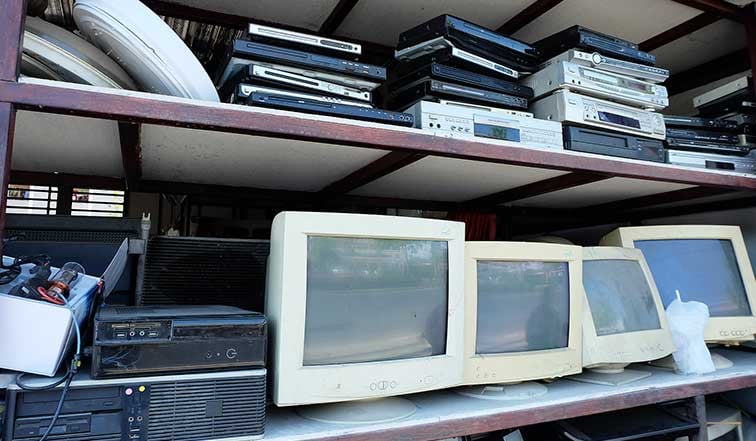Disposing of Old Computer Hardware
 Your asset management software can manage asset disposal as part of your accounts ledger but how do you physically dispose of old IT equipment in a cost-effective, environmentally responsible way?
Your asset management software can manage asset disposal as part of your accounts ledger but how do you physically dispose of old IT equipment in a cost-effective, environmentally responsible way?
Information technology continues to move apace becoming more flexible, mobile and powerful. Many applications are moving to cloud-based models meaning schools don’t have to rely so much on computer servers (and their ongoing support contracts). Conversely cloud-based apps can sometimes help schools squeeze their assets by giving older hardware a new lease of life. For example, Cloudready by Neverware offers a way to give new life to existing PCs and Macs by converting them into Chrome devices. But generally speaking, as far as the budget allows, schools want to adopt and leverage the latest technological advances and this will inevitably involve the disposal of redundant hardware assets.
Be green
A lot of computer equipment will contain potentially hazardous pollutants, such as the lead content in CRT monitors and batteries, so they must be disposed of in the right way. Make sure that you engage with a waste disposal company with the appropriate accreditation or you run the risk of disposing of your equipment illegally. The supporting regulations covering waste handling are WEEE (Waste Electrical and Electronic Equipment) and RoHS (Restriction of Hazardous Substances).
Don’t forget about data protection
Under the auspices of GDPR there are strict rules about personal data confidentiality and this is an important consideration when disposing of redundant hardware. There are disposal specialists who can provide assurances that your data will remain secure from the moment their driver collects your equipment. The best practice recommendation is to write down the serial numbers of any hard drives and get them signed for when handing over the equipment.
Data removal should be a forensic wiping procedure, eliminating all traces of data from hard drives and if for any reason the data cannot be wiped, then the devices will be physically destroyed. This should be carried out by a disposal company whose work complies with ‘CESG Infosec Level 5 HMG’ approved standards who can present you with the relevant certification:
- Hazardous Waste Consignment
- Waste Transfer Certificate
- Data Destruction Confirmation Letter
A copy of these documents should be retained by the school as a permanent record of disposal, ideally as an attachment in your asset management software.
Keep it cost effective
Although your old hardware may seem like a pile of junk, the raw materials inside may still hold some market value. Consequently many specialist disposal companies will dispose of your old hardware assets free of charge as they can extract valuable materials such as lead, copper, tin, silicon, iron and aluminium. It is estimated that only about two percent of the entire computer – all components of it – cannot be recycled. Again, ensure that you’re dealing with a firm who can present evidence of meeting industry standards and hold a professional accreditation.
About Lisa Robinson
Lisa - word smith to the gods.
